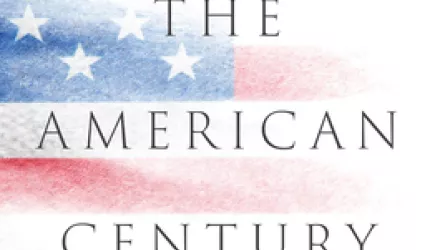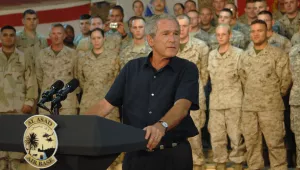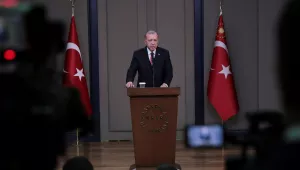Letter to the Editor
Note
This letter was written in response to Leslie H. Gelb's review of The Israel Lobby and U.S. Foreign Policy which was published on September 23, 2007.
Leslie H. Gelb gets a number of things wrong in his review of our book, ''The Israel Lobby and U.S. Foreign Policy'' (Sept. 23), but two points require immediate clarification. Gelb refers repeatedly to a ''Jewish lobby,'' despite the fact that we never employ the term in our book. Indeed, we explicitly rejected this label as inaccurate and misleading, both because the lobby includes non-Jews like the Christian Zionists and because many Jewish Americans do not support the hard-line policies favored by its most powerful elements. The Israel lobby, we emphasized, is defined by its ''specific political agenda ... not the religious or ethnic identity of those pushing it.'' By using the phrase ''Jewish lobby'' in the headline of the review, in the text and in a pull-quote, Gelb and the editors of the Book Review misrepresented a key part of our argument.
Gelb also suggests that ''vitriol about the Iraq war'' — a war we strongly opposed — motivated our decision to write about the lobby. This is incorrect. We began researching the lobby's influence in the spring of 2002, well before the Iraq debate heated up, and we were invited to write the original article by The Atlantic Monthly in October 2002, nearly six months before the war began. We chose this topic because our research led us to the conclusion that unconditional support for Israel — combined with Israel's actions in the occupied territories — was undermining America's standing around the world and exacerbating our terrorism problem. Influential groups in the lobby had also encouraged the United States to pursue confrontational policies in the Middle East that were in neither America's nor Israel's interest. As scholars, we felt it was important to encourage a more open discussion of this situation, and that is why we wrote our book.
John J. Mearsheimer
Chicago
Stephen M. Walt
Cambridge, Mass.
Mearsheimer, John J. and Stephen M. Walt. “The Israel Lobby.” The New York Times, October 14, 2007







